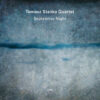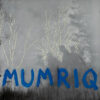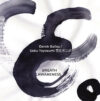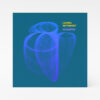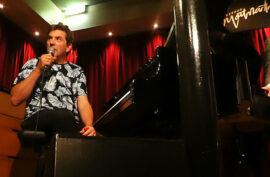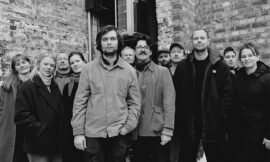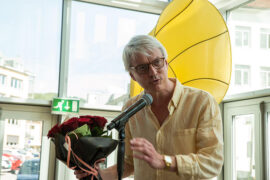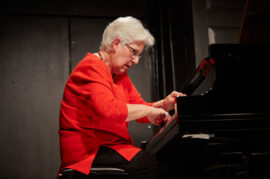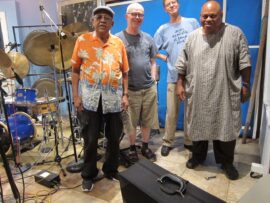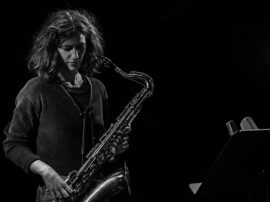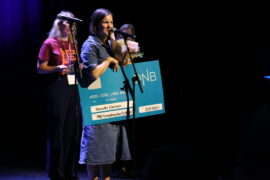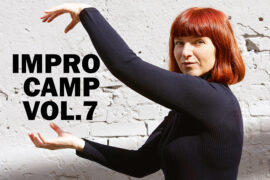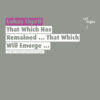
In November 2015 Warsaw’s POLIN Museum for the History of Polish Jews, located in an area that was the Warsaw Ghetto, invited American composer-percussionist Lukas Ligeti as an artist-in-residence. Ligeti – known for his work with John Zorn and the contemporary ensembles Bang on a Can, Kronos Quartet and Ensemble Modern, welcomed the opportunity to reflect upon his own (Hungarian) Jewish heritage (he is the son of composer György Ligeti) and immersed himself in the state of Jewish life in East-Central Europe through the creation of community-based work, «That Which Has Remained… That Which Will Emerge…
Ligeti conducted many interviews (including with the oldest Holocaust survivor and oldest Jew at the time in Poland, Henryk Prajs, 98 years old at the time of the interview. He died in 2018, 102 years old and the album is dedicated to his memory) about Jewish life in Warsaw. He asked the interviewees to share memories, associations, experiences and ideas and to sing songs related to the Jewish heritage. In addition, He recorded musical pieces performed by representatives of the Jewish communities, among them «Nasz wiek XX» («Our Twentieth Century») by the Jewish rock band ŚLIWKI (established in early 1966 and dissolved in the aftermath of the March ‘68 events) and «Oyfn Veg Shteyt a Boym», a song with lyrics by Itzik Manger (a Jewish Yiddish poet and writer), sung to a folk melody that was extremely popular in the early 1950s, and interpreted majestically by soprano Barbara Kinga Majewska here. Ligeti also used excerpts from «City of the Damned – Two Years in the Warsaw Ghetto» by Jerzy Jurandot.
Excerpts of the recorded stories, songs, texts and dreamscapes – in both Polish and English – were given by Ligeti precise musical notation and were the basis for the 46-minute composition. A group of five young Polish musicians, conducted by Ligeti, asked to respond intuitively to these edited and processed speeches and melodies and continue these free-associative conversations as if they were fragments of their own memories. Ligeti sometimes asked this chamber ensemble to imitate the melodies, to improvise on the sounds or harmonies, or to replicate the irregular rhythmic patterns of the texts, in a manner that brings to mind the work of Steve Reich with recordings of speech flowing in rhythms. This composition was performed live at the end of November 2015 at the POLIN Museum. The musicians were not anchored to a specific location and sometimes moved about the building while playing, entering spaces with different acoustical properties. Two days later the album was recorded at the Agnieszka Osiecka Music Studio of Polish Radio.
Obviously, «That Which Has Remained… That Which Will Emerge…» is an untimely and deeply emotional composition. But it is not only a moving meditation on aural memory, a composition that travels through time, memories and space but also a composition that dissolves boundaries between sound art, performance art and conventional concert. This composition emphasizes the healing power of music, in its many forms as well as art at all, as its essence is listening, cooperation, collaboration and an attempt to rebuild a better, compassionate world. But most importantly, this fascinating composition stresses the resilience of the Jewish heritage of Jewish communities in Poland against oppression and genocide. «That Which Has Remained… That Which Will Emerge…» is a bold and inspiring statement against antisemitism.
Eyal Hareuveni
Barbara Kinga Majewska (soprano), Paweł Szamburski (cl), Patryk Zakrocki (vio, viola, mbira), Mikołaj Pałosz (c), Wojtek Kurek (dr, synth), Lukas Ligeti (elec, marimba lumina)


